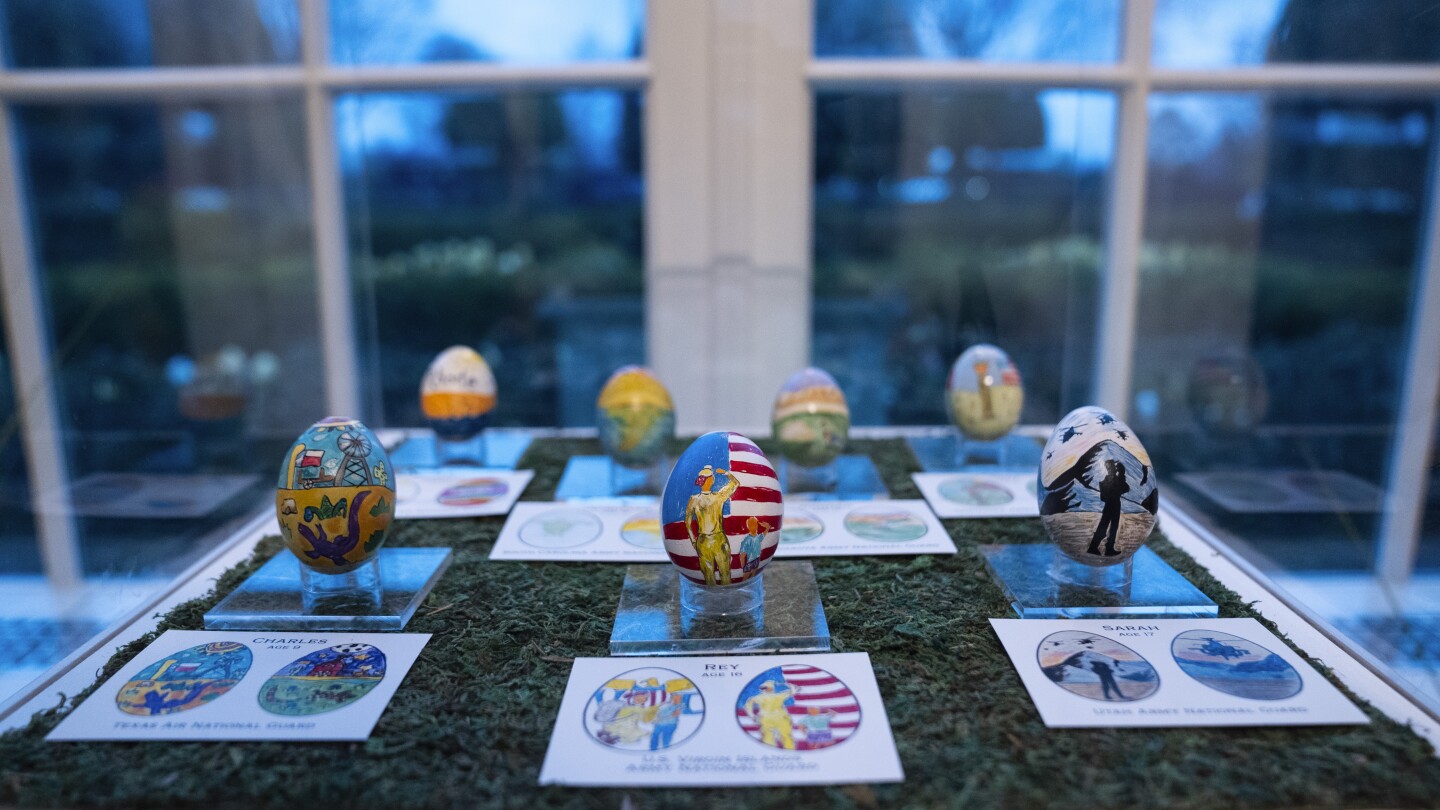
As millions celebrated Easter this weekend, the Biden administration was criticized by many on social media, including several Republican politicians, for supposedly disrespecting the Christian holiday.
The criticism centered on two separate claims. One, that President Joe Biden declared Easter Sunday to now be Transgender Day of Visibility and two, that he banned religious symbols from an Easter egg art contest at the White House.
But both allegations are missing important context and misrepresent what actually happened.
Here’s a closer look at the facts.
CLAIM: Biden declared that Easter Sunday is now a holiday celebrating transgender people.
THE FACTS: Transgender Day of Visibility has been celebrated on March 31 since 2009, when the holiday was created. Every year since becoming president, Biden has issued a proclamation around the observance on that date. It was a coincidence in 2024 that the day corresponded with Easter Sunday, which falls on a different date each year.
Nonetheless, social media users are saying that Biden chose March 31 for Transgender Day of Visibility as an affront to Christians. Many Christians oppose greater recognition of trans people as part of their religious beliefs and took offense at the two days being paired, even though it was only a byproduct of the calendar.
“He could pick any day to declare a Transgender day,” reads one X post. “For Joe Biden to select Easter Sunday is a insult to Christians. This was intentional. It was done with the intent to flip the middle finger at Christians. His staff knew exactly what they were doing.”
White House press secretary Karine Jean-Pierre called the claims “untrue” at a White House briefing on Monday, saying that the administration was “really so surprised by the misinformation that has been out there around this.”
“Every year for the past several years on March 31 Transgender Day of Visibility is marked. And as we know, for folks who understand the calendar and how it works, Easter falls on different Sundays every year,” she told reporters. And this year it happened to coincide with Transgender Visibility Day. And so that is the simple fact. That is what has happened. That is where we are.”
Following the proclamation, the Trump campaign criticized Biden, a devout Roman Catholic, of being insensitive to religion, and fellow Republicans piled on.
Jean-Pierre said at the briefing that it is “unsurprising” that “politicians are seeking to divide and weaken our country with cruel, hateful and dishonest rhetoric.” She added that Biden “will never abuse his personal faith for political purposes or for profit.”
Biden first issued a proclamation about Transgender Day of Visibility in 2021, about two months after his inauguration. He continued this recognition in 2022 and 2023. Proclamations are generally statements about public policy by the president.
Rachel Crandall-Crocker, the executive director and co-founder of the nonprofit Transgender Michigan, organized the first International Transgender Day of Visibility in 2009 to bring attention to a population that is often ignored, disparaged or victimized.
It was designed as a contrast to Transgender Day of Remembrance, which is held annually on Nov. 20 to honor the memory of transgender people who were killed in anti-transgender violence. Crandall-Crocker selected March 31 to give the holiday space from the day of remembrance and Pride Month in June, which celebrates all types of LGBTQ+ people.
___
CLAIM: Biden banned religious symbols from a White House Easter egg art contest.
THE FACTS: A flier soliciting children from National Guard families to submit an egg design for a White House exhibit organized in collaboration with the American Egg Board specified that submissions should not include “religious symbols” or “overtly religious themes.”
But such restrictions are nothing new.
“The American Egg Board has been a supporter of the White House Easter Egg Roll for over 45 years and the guideline language referenced in recent news reports has consistently applied to the board since its founding, across administrations,” Emily Metz, its president and CEO, said in a statement.
Elizabeth Alexander, a spokesperson for first lady Jill Biden, similarly wrote in an X post that “the American Egg Board’s flyer’s standard non-discrimination language requesting artwork has been used for the last 45 years, across all Dem & Republican Admins — for all WH Easter Egg Rolls—incl previous Administration’s.”
After the flier spread online, social media users falsely claimed that it was Biden who had decided to prohibit such imagery as part of the contest, which is part of many Easter traditions at the White House, including the annual Easter egg roll.
“Joe Biden just told all the Easter egg art decorators in the White House that NO RELIGIOUS IMAGERY is allowed,” reads one X post. “He’s just spit in the face of Christ on the cross who died for our sins to lift up the ULTIMATE sinners.”
The American Egg Board is a commodity checkoff program, meaning that it promotes and researches a particular agricultural commodity without referencing specific producers or brands.
All such programs must follow federal guidelines, including prohibitions on religious discrimination. This has been the case since the American Egg Board was established in 1976, according to Metz.
Children from National Guard families submitted egg designs showcasing their lives for the third annual “Colonnade of Eggs” exhibit at the White House, which honors the first lady’s support of military-connected families. Artists brought their designs to life on real eggs.
The American Egg Board has historically presented a commemorative egg to the first lady that reflects her passions, causes and contributions. Since 2022, the board has collaborated with the White House to curate larger exhibits displaying egg art throughout the spring.
Dating to 1878, the first White House Easter egg roll was held by President Rutherford B. Hayes, who agreed to open the White House lawn to children after they were kicked off the grounds of the U.S. Capitol.
This is part of the AP’s effort to address widely shared false and misleading information that is circulating online. Learn more about fact-checking at AP.



